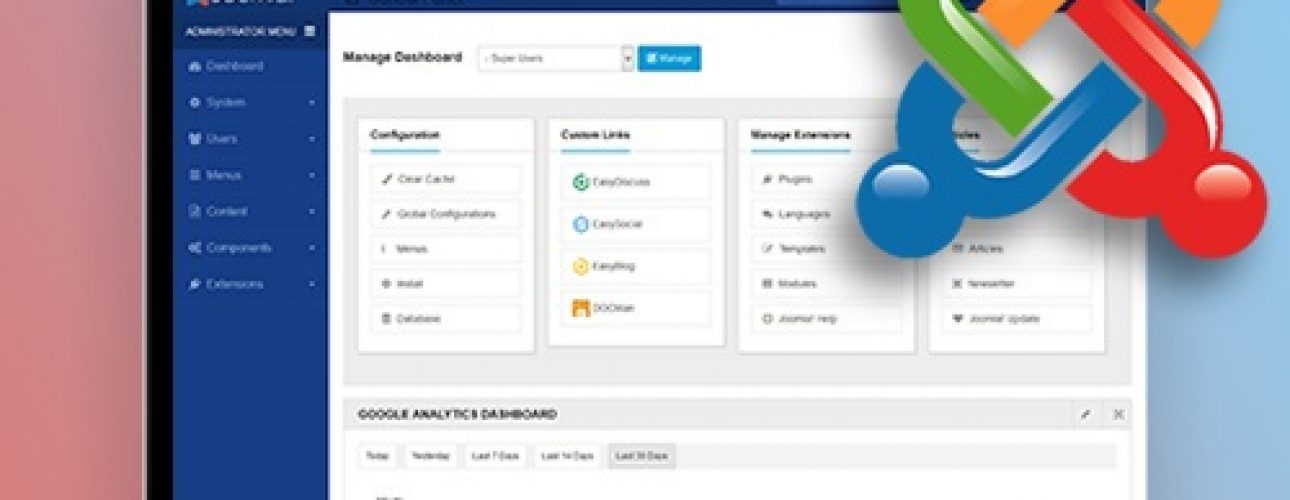Joomla: A Comprehensive Overview
Joomla is one of the most popular content management systems (CMS) globally, used by millions of websites to manage and publish content online. Known for its flexibility, scalability, and ease of use, Joomla has evolved significantly since its inception, catering to various users—from small personal blogs to large corporate websites. This deep dive will explore Joomla’s features, strengths, weaknesses, and how it compares to other CMS platforms.

Key Features:
- Flexibility and Extensibility: Joomla offers extensive flexibility through its modular structure. Users can extend its core functionality using thousands of extensions available in the Joomla Extensions Directory (JED). These extensions cover a wide range of needs, including e-commerce, social networking, SEO, and much more.
- User Management: Joomla provides a robust user management system, allowing administrators to create multiple user groups with varying permissions. This feature is particularly useful for websites that require different levels of access for different types of users, such as members-only areas or editorial workflows.
- Content Management: Joomla excels in content management, offering advanced options for organizing and displaying content. It supports multiple content types, hierarchical categories, tagging, and version control, making it ideal for complex websites with diverse content needs.
- Templates and Design: Joomla’s templating system allows users to change the look and feel of their website easily. It supports both free and premium templates, giving users the flexibility to customize their site’s appearance without needing extensive coding knowledge. The template override feature also allows advanced users to modify specific parts of a template without affecting the rest of the site.
- Multilingual Support: Joomla has built-in multilingual support, enabling users to create websites in multiple languages without the need for additional extensions. This feature makes Joomla a strong choice for global businesses or organizations with an international audience.
- SEO Capabilities: Joomla offers a range of SEO tools out-of-the-box, including customizable meta tags, SEF (Search Engine Friendly) URLs, and support for sitemaps. These features help ensure that Joomla websites are well-optimized for search engines, improving their visibility online.
Strengths of Joomla:
- Community Support: Joomla boasts a large and active community of developers, designers, and users. This community-driven approach ensures that the platform is continuously improving, with regular updates and a wealth of resources available for troubleshooting and learning.
- Flexibility for Developers: Joomla’s modular architecture and API make it a preferred choice for developers who need a highly customizable platform. It provides extensive documentation and tools for building custom extensions, allowing developers to tailor Joomla to specific project requirements.
- Security: Joomla places a strong emphasis on security, with regular updates and a dedicated Security Strike Team (JSST) that monitors and addresses vulnerabilities. The platform also offers built-in tools to help users secure their websites, such as two-factor authentication and customizable user access controls.
Weaknesses of Joomla:
- Learning Curve: While Joomla is powerful, it has a steeper learning curve compared to some other CMS platforms like WordPress. New users might find the interface and the wealth of options overwhelming, particularly if they lack prior CMS experience.
- Extension Compatibility: Due to the extensive number of third-party extensions available, compatibility issues can arise, especially during upgrades to newer Joomla versions. This can lead to additional maintenance work, as extensions may need to be updated or replaced to ensure they function correctly with the core CMS.
- Market Share: Joomla has a smaller market share compared to WordPress, which means there are fewer ready-made themes and plugins available. Additionally, the smaller user base might result in fewer resources or community contributions in some areas.
Comparison with Other CMS Platforms:
- Joomla vs. WordPress: WordPress is often considered more user-friendly, especially for beginners, and has a larger market share. However, Joomla is more flexible for complex sites with diverse content types and access controls. Joomla’s built-in multilingual support and user management system are also more robust than WordPress’s default offerings.
- Joomla vs. Drupal: Drupal is another powerful CMS that excels in flexibility and scalability, often used for enterprise-level websites. While both Joomla and Drupal are highly customizable, Drupal has a steeper learning curve and is more developer-centric. Joomla strikes a balance between ease of use and customization, making it a more accessible choice for non-developers.
- Joomla vs. Proprietary CMS: Proprietary CMS platforms offer tailored solutions with dedicated support, which can be advantageous for specific business needs. However, Joomla’s open-source nature provides greater flexibility and cost savings, as there are no licensing fees. Joomla also benefits from a large community that continuously improves the platform, unlike proprietary solutions that may depend on the vendor’s roadmap.
Conclusion: Joomla remains a powerful, flexible, and community-driven CMS that caters to a wide range of website needs. While it may not have the same level of popularity as WordPress, its robust features and strong support community make it an excellent choice for users who need more control over their website’s structure and functionality. Whether you’re building a simple blog or a complex corporate site, Joomla offers the tools and flexibility to bring your vision to life.
As Joomla continues to evolve, it remains a relevant and compelling option in the CMS landscape, particularly for users seeking a balance between ease of use and customization.


